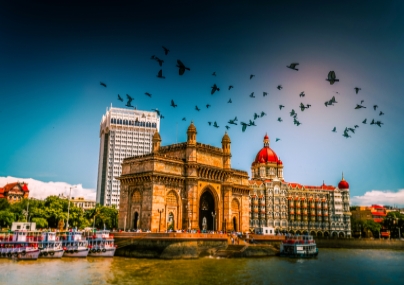
The reputation of India’s aviation industry took a hit after the grounding of India’s Go First airline, the bankruptcy procedures that followed and a decision by regulators that blocked aircraft lessors from getting their planes back.
Go First grounded its planes on May 3 and was granted bankruptcy protection on May 10. The airline said in various announcements that flights would resume on June 25.
India’s Directorate General of Civil Aviation (DGCA), the aviation watchdog, put requests to repossess aircraft on hold while the airline goes through the bankruptcy process. In court filings, the DGCA said the freezing of the assets takes priority over repossession requests.
How did India’s aviation regulators stop the repossession of Go First’s aircraft?
A decision by the National Company Law Appellate Tribunal (NCLAT) to uphold the earlier move by the National Company Law Tribunal (NCLT) admitting Go First into insolvency resolution “and not allowing the lessors to repossess the aircraft has disregarded the Cape Town Convention 2001,” says Abhishek Sharma, a partner at Dentons Link Legal.
Under the convention, aeroplane lessors are entitled to de-register and export their planes out of India in the event of a default. But, Section 14 of the Insolvency and Bankruptcy Code, 2016, prohibits the recovery of property “where such property is occupied by or in possession of the corporate debtor,” Sharma says.
However, the NCLAT did open the door for lessors to approach the NCLT to consider the specific issue.
What are the implications for aeroplane lessors?
Lessors have “expressed concern” that they cannot get their planes back.
All planes Go First has leased are frozen, and lessors cannot recover them. The lessors may file a claim for outstanding payments due and dues incurred during the “corporate insolvency resolution process, will become part of the corporate insolvency resolution process cost, which shall be paid in priority over other dues,” says Sharma.
“While the issue with respect to repossession of aircraft is pending before the NCLT, it will be challenging for the lessors to reclaim possession of the aircraft,” he adds. After the bankruptcy proceedings started, “a group of lessors, namely a global aviation leasing watchdog, has put India on a watchlist with the remark that Go First failed to comply with international craft repossession norms,” Sharma notes. The lessors have now identified India’s “aviation market as a risky market.”
What are the immediate issues for lessors to consider?
Go First’s unexpected failure was shocking. Legal norms and regulations now pit aviation industry norms against India’s bankruptcy rules.
The good news is that the government is considering a Cape Town Convention bill to protect foreign aircraft lessors, but that could take time. For now, lessors have approached the NCLT as part of an effort to repossess their aircraft.
Practically, there are concerns about the safety of both aircraft and their engines, which are unprotected.
For the time being, Go First remains in possession of the planes, and it will be hard for lessors to recover them.
“Going forward, we would advise lessors to tighten the noose around terms and provision of their existing sale and lease back arrangements in order to ring-fence any issues pertaining to reclaiming the possession of aircraft,” Sharma says.


